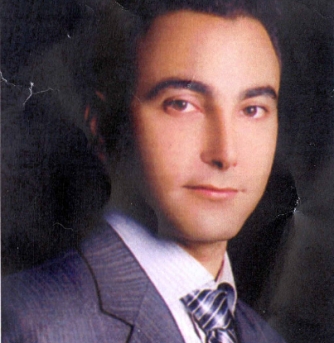
Cross-posted from niacINsight.com.
To the world, he is the man that was brutally run over a police car during Ashura’s protests, but to his family, he is Shahram.
Abbas (Shahram) Farajzadeh Tarani was thirty-years old when a police car backed into him and then ran over him again, killing him on Dec. 27. His death was captured by fellow protesters by this thirty second youtube video. He worked in a paint factory and leaves behind his wife and five year-old daughter. Like many of those martyred during the post-election unrest, the Iranian government has done its best to stop the impact of his death.
As was told to us by a third-party source, after he was hit, fellow protesters and one relative took his body to the hospital. But, when his family arrived at the hospital, his body was missing. Shortly thereafter, government officials called his brother to tell him that Shahram’s body was being buried in Behesht Zahra, the main cemetery in Tehran.
When the brother arrived, he was faced with four intelligence officers and they warned him not to cause a scene. His family was told they were not allowed to hang up the traditional black cloths on his home or his office to notify friends of his death. The government had taken the liberty of washing his body and wrapping it in a white cloth, both of which are important rite in Iranian mourning process normally overseen by close friends and relatives, and then, in proper tradition, wrapped him in a white cloth. They were allowed to see the body for a moment and noticed that he was covered in stitches.
After burying the body, families normally hold a ceremony at a mosque on the third day of the person’s death. But for the Farajzadeh Taranis, each mosque they approached refused them. Apparently the government had threatened the mosques and forbade them from hosting the ceremony.
Like many families who have lost their relatives to the post-election upheaval, Shahram’s family was forced to quietly mourn for him in their home, in fact, his brother had to sign an agreement saying he would not have a public ceremony.
As if the Iranian intelligence community does monitor its citizens’ behavior enough, four intelligent officers oversaw the Shahram’s ceremony at his family’s home. Men filled one room and women the other, all the while, Shahram’s father kept crying out, “Shahram, your blood was unjustly shed!”
Two days ago, on Monday, a week after his death, the Farajzadeh Tarani’s were allowed to mourn the seventh day since Shahram’s death at a mosque. Normally families print out flyers and paste them outside the mosque or near their work places, but once again, they were denied this basic custom. Instead they printed flyers themselves and handed them out to friends who seemed to be unaware of their son’s death. Traditionally, on the top of these flyers is a line of poetry, and his reads, “From every death, rises some sadness, but there are differences between death and death.”
“I feel he died in vain,” expressed one of Shahram’s relatives to our third-party source. So the responsibility once again falls to outside media and Iranian citizen journalism to ensure the world remembers Shahram’s fight for freedom.






